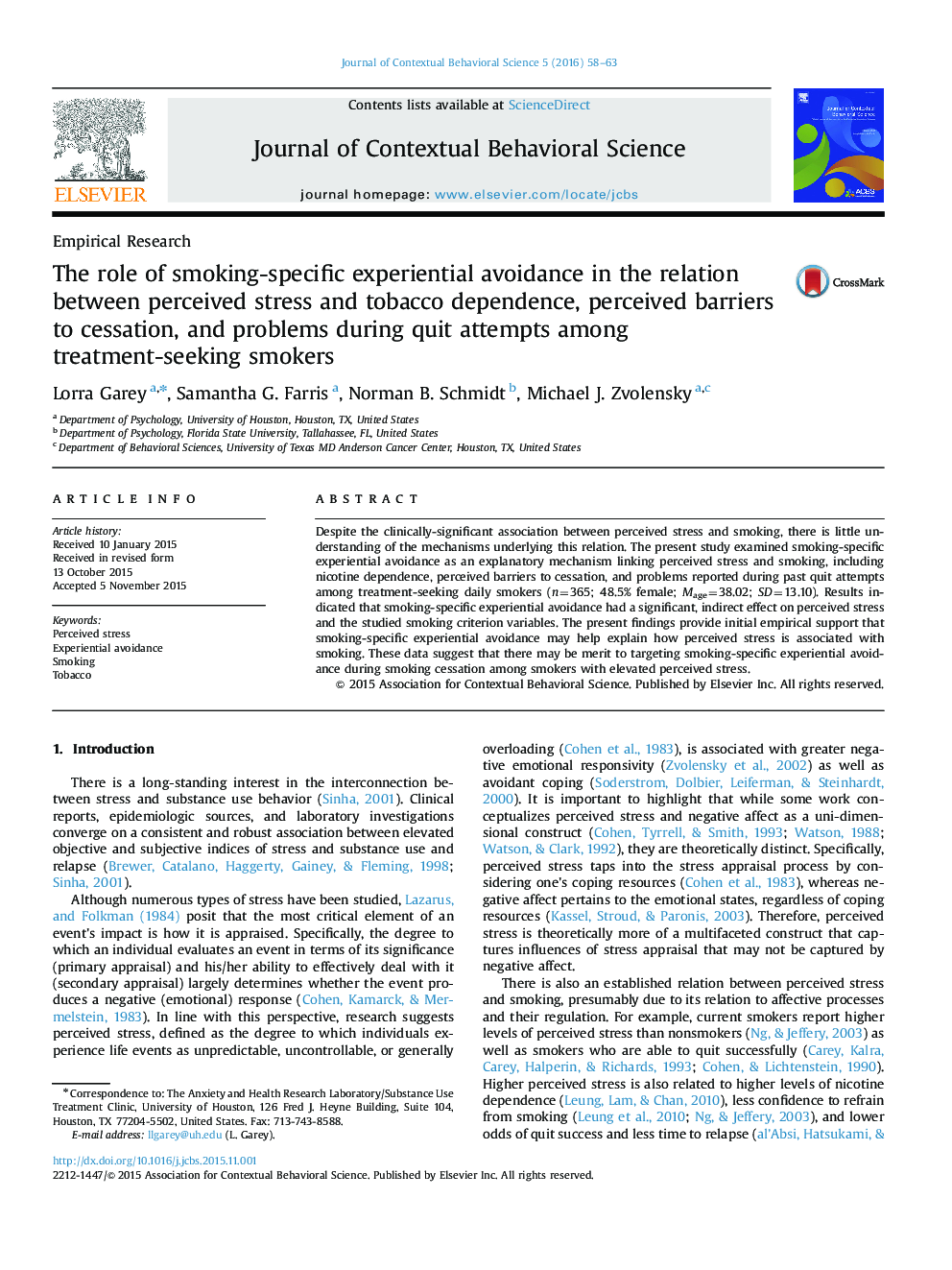| Article ID | Journal | Published Year | Pages | File Type |
|---|---|---|---|---|
| 911165 | Journal of Contextual Behavioral Science | 2016 | 6 Pages |
•Stress indirectly related to nicotine dependence through experiential avoidance.•Stress indirectly related to barriers to cessation through experiential avoidance.•Stress indirectly related to quit problems through experiential avoidance.•Smoking-specific experiential avoidance links perceived stress and smoking.
Despite the clinically-significant association between perceived stress and smoking, there is little understanding of the mechanisms underlying this relation. The present study examined smoking-specific experiential avoidance as an explanatory mechanism linking perceived stress and smoking, including nicotine dependence, perceived barriers to cessation, and problems reported during past quit attempts among treatment-seeking daily smokers (n=365; 48.5% female; Mage=38.02; SD=13.10). Results indicated that smoking-specific experiential avoidance had a significant, indirect effect on perceived stress and the studied smoking criterion variables. The present findings provide initial empirical support that smoking-specific experiential avoidance may help explain how perceived stress is associated with smoking. These data suggest that there may be merit to targeting smoking-specific experiential avoidance during smoking cessation among smokers with elevated perceived stress.
